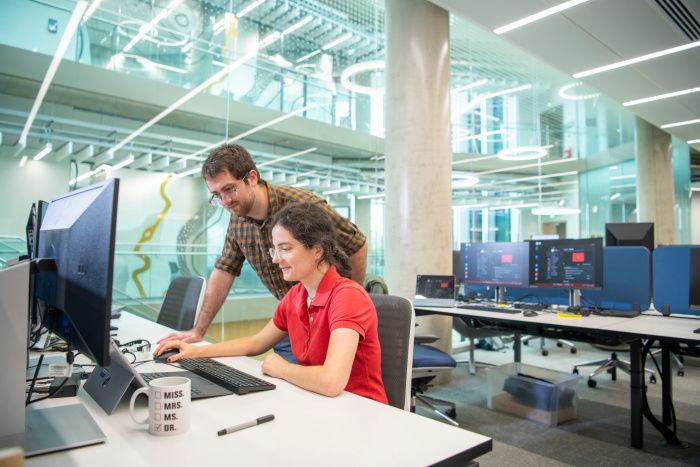Study with QEPNT
Join the UK Hub for Quantum Enabled Position, Navigation & Timing and help us shape the future of PNT technology.
PhD Opportunities in PNT research
Postgraduate researchers within QEPNT will be able to undertake research to overcome the challenges of miniaturising robust quantum sensors for a wide variety of end-use applications.

Our PhD positions align with the UK National Quantum Technology Programme, contributing directly to the EPSRC funded UK Hub for Quantum Enabled Position, Navigation, and Timing (QEPNT).
Mission 4 of the £2.5Bn UK National Quantum Strategy states the intent of the UK that ‘By 2030, quantum navigation systems, including clocks, will be deployed on aircraft, providing next-generation accuracy for resilience that is independent of satellite signals’. QEPNT was launched in December 2024 to support the goals of this mission, bringing together 10 academic partners and over 30 UK companies, creating a vibrant ecosystem of innovation and collaboration.
Why This Research Matters
Disruption of GNSS signals, whether through jamming or spoofing, could result in a £1Bn/day economic impact.Developing next-generation systems based on quantum technology with significantly improved performance that meet UK national objectives is the goal of our PhDs.
What We Offer
- Collaboration with industrial partners in the quantum technology ecosystem.
- Involvement in the UK Hub for QEPNT and other UK Quantum Hubs.
- Access to world-class facilities and training.
- Opportunities to publish in high-impact journals and present at leading international conferences.
- Support for career development in academia or high-tech industries.
Our PhD positions align with the UK National Quantum Technology Programme, contributing directly to the EPSRC funded UK Hub for Quantum Enabled Position, Navigation, and Timing (QEPNT).
Mission 4 of the £2.5Bn UK National Quantum Strategy states the intent of the UK that ‘By 2030, quantum navigation systems, including clocks, will be deployed on aircraft, providing next-generation accuracy for resilience that is independent of satellite signals’. QEPNT was launched in December 2024 to support the goals of this mission, bringing together 10 academic partners and over 30 UK companies, creating a vibrant ecosystem of innovation and collaboration.
Why This Research Matters
Disruption of GNSS signals, whether through jamming or spoofing, could result in a £1Bn/day economic impact.Developing next-generation systems based on quantum technology with significantly improved performance that meet UK national objectives is the goal of our PhDs.
What We Offer
- Collaboration with industrial partners in the quantum technology ecosystem.
- Involvement in the UK Hub for QEPNT and other UK Quantum Hubs.
- Access to world-class facilities and training.
- Opportunities to publish in high-impact journals and present at leading international conferences.
- Support for career development in academia or high-tech industries.
If you would like more information on our PhD opportunities, please contact info@qepnt.ac.uk.

